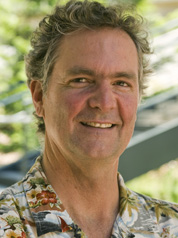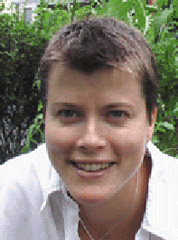Campus News
Gene patent decision called step forward for open research
Genetics researchers at UC Santa Cruz said the U.S. Supreme Court’s unanimous ruling that human genes cannot be patented will help keep advanced genetic research from being controlled by private biotechnology companies.


Genetics researchers at UC Santa Cruz said the U.S. Supreme Court’s unanimous ruling that human genes cannot be patented will help keep advanced genetic research from being controlled by private drug and biotechnology companies.
David Haussler, distinguished professor of biomolecular engineering and director of the Center for Biomolecular Science & Engineering, said that if companies were allowed to patent naturally occurring genetic variations, it would greatly inhibit scientific and medical progress.
“The Supreme Court made the right distinction between naturally occurring molecules and synthetic molecules that are engineered by people,” he said. “Understanding genetic variation in humans is fundamental to scientific and medical investigations of cancer and other diseases. People can use that information to create a new therapy or drug, and in that case, when you create a novel molecular combination, that’s a creative act, and you should be able to patent that. But the common genetic inheritance of the human species is not patentable.”
The Supreme Court case involved patents on two genes, known as BRCA1 and BRCA2, used in genetic testing for cancer risk. Certain mutations in these genes greatly increase the risk of breast and ovarian cancers. Due to the patents, however, options for testing were limited and expensive.
“This is an important win for the biosciences and industry,” said Jenny Reardon, co-director of UCSC’s Science and Justice Research Center. “Undoubtedly the decision will make the BRCA genetic testing more affordable and thus accessible to more women. However, the ruling is also a win for many genetic testing services that seek to provide testing across the genome.”
Reardon is an associate professor of sociology and faculty affiliate in the Center for Biomolecular Science & Engineering where she studies science and society.
When Haussler’s group began its work on the Human Genome Project in 1999, the potential privatization of the human genome was a very real concern. The public consortium that Haussler had just joined was in a race with a private company, Celera Genomics, to determine the complete DNA sequence of the human genome. Haussler’s team assembled the first working draft of the human genome sequence in June 2000, just days before Celera completed its first assembly, and published it shortly thereafter on a UCSC web site.
“Companies were already trying to lock up gene patents, and we felt that would be detrimental to science,” Haussler said. “The public consortium’s strategy was to get the information out and make it public before it was patented, and we accomplished that in July 2000 when we released the first draft of the human genome from Santa Cruz without any patent claims, free to the world.”
Reardon said that “as tremendous advances in sequencing technologies have made whole genome sequencing possible and feasible, and it has become clear that to address most disease looking across the genome, and not at single genes, is key, gene patents hinder many in the industry.”
While the court’s ruling addressed one of the property issues raised by genomics, Reardon said, “in some ways it was the easiest one. What lies ahead will be much less clear and more complicated decisions about who can own and control genomic data.”
Reardon is at work on her second book, The Post-Genomic Condition: Ethics, Justice, Knowledge After the Genome.